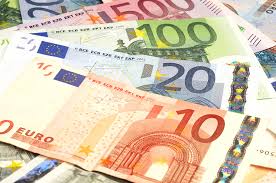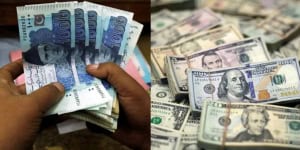TOKYO (APP) – The euro struggled against the dollar in Asia on Thursday as traders await a European Central Bank meeting where policymakers are widely expected to launch a huge bond-buying programme to kickstart the ailing eurozone economy.
The single European currency fetched $1.1604 and 137.22 yen at midday in Tokyo, mixed from $1.1607 and 136.85 yen in New York. The dollar rose to 118.29 yen against 117.90 yen in US trade, after the Bank of Japan (BoJ) on Wednesday slashed its outlook on consumer prices, throwing a much-touted 2.0 percent inflation target into further doubt.
The BoJ’s downgrade — and high expectations for the new ECB measures — come after the US Federal Reserve wound up its own asset-purchase scheme and eyes a mid-year interest rate hike, which is a plus for the dollar.
“The US is standing out even more as central banks continue to ease policy,” said Junichi Ishikawa, market analyst at IG Markets Securities. “Conditions remain supportive for the dollar.” Speculation has reached fever pitch that ECB chief Mario Draghi will use his most powerful policy tool yet in the battle against deflation.
The expected programme of sovereign bond purchases, known as quantitative easing (QE), comes after eurozone prices fell in December for the first time in five years, stoking fears that the region is on the brink of a dangerous spiral of falling prices.
The prospect of such a move has hit the euro, which last week fell below $1.1500 for the first time in more than 11 years before recovering slightly.
“The euro decision is kind of well telegraphed but euro-dollar does have more to go on the downside,” Thomas Averill, a managing director in Sydney at Rochford Capital, told Bloomberg News.
“The euro-zone economy seems pretty sluggish at the moment and needs QE.” On Thursday, the BoJ slashed its inflation outlook for the year from April 2015, as plunging oil prices dent its efforts to slay inflation, while policymakers decided against fresh easing measures as they wrapped up a two-day policy meeting.
The bank boosted its growth forecasts, however, saying the economy was rebounding, although analysts said the inflation downgrade was likely to boost speculation of further BoJ easing, which would tend to weaken the yen.
Sarfraz Ali
The writer works as lifestyle Reporter for Daily Pakistan. He can be reached at sarfraz1168@gmail.com.
















